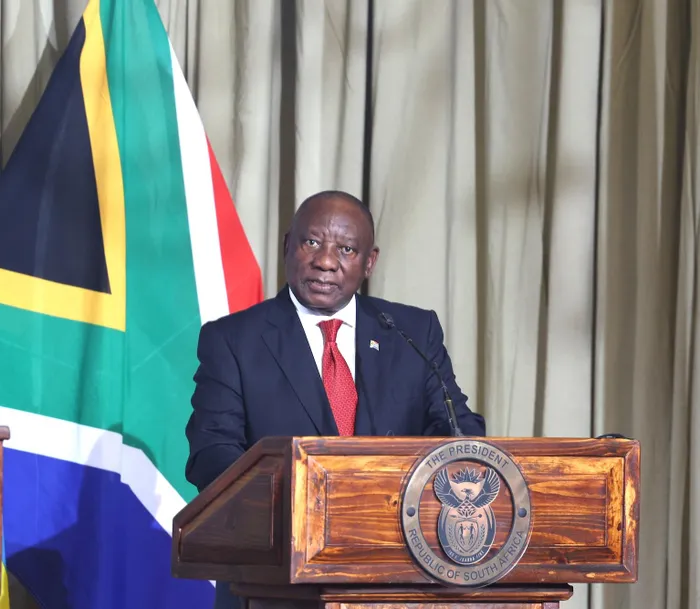
President Cyril Ramaphosa declared the ANC corruption accused Number One when he became its president. C it be said that has since changed since he took office, asks the writer.
Image: Siyabulela Duda/GCIS
PRESIDENT Cyril Ramaphosa won himself huge applause when he declared the ANC, the party he leads, corruption accused Number One.
That admission set the expectation, and rightly so, that arrests were to follow as lady justice would sweep across, both in and outside the ANC. What elevated this excitement was when the ANC hyped the so-called renewal project and started enforcing the step aside rule.
The step-aside rule meant criminally-charged party members were to voluntarily excuse themselves from whatever position they held to clear their names before resuming their responsibilities.
From the face of it, it appeared the fight against corruption, especially within the ANC ranks was finally taking shape. Ace Magashule et al were the first to feel the impact of the step-aside rule.
Since then, it soon became evident that some of these measures were nothing but factional. The promised fight against corruption started to fade. It was once again one corruption scandal after the other. From PPE corruption at the height of the Covid-19 pandemic to the money meant for KwaZulu-Natal flood victims finding itself in the wrong hands.
Things came to a head when the president himself could not publicly explain the Phala Phala farm dollars concealed in couches.
Other than Magashule and those aligned with him, no other high profile case has been presented before the courts leading to convictions. If anything, the opposite is true.
All of this leads to the question, can it be said that the ANC is no longer accused Number One under Ramaphosa?
If not, what informs that? If it still is, does that not then mean the parties in the GNU especially the DA are accomplices? Or have they too become blind to the fact that they are in Cabinet with some of the people they once wanted to see in orange overalls?
These are critical questions the country needs to confront when examining the effectiveness of the GNU. Failure to do so risks creating a government that cares less about the country’s future but more concerned about politicians’ narrow interests.